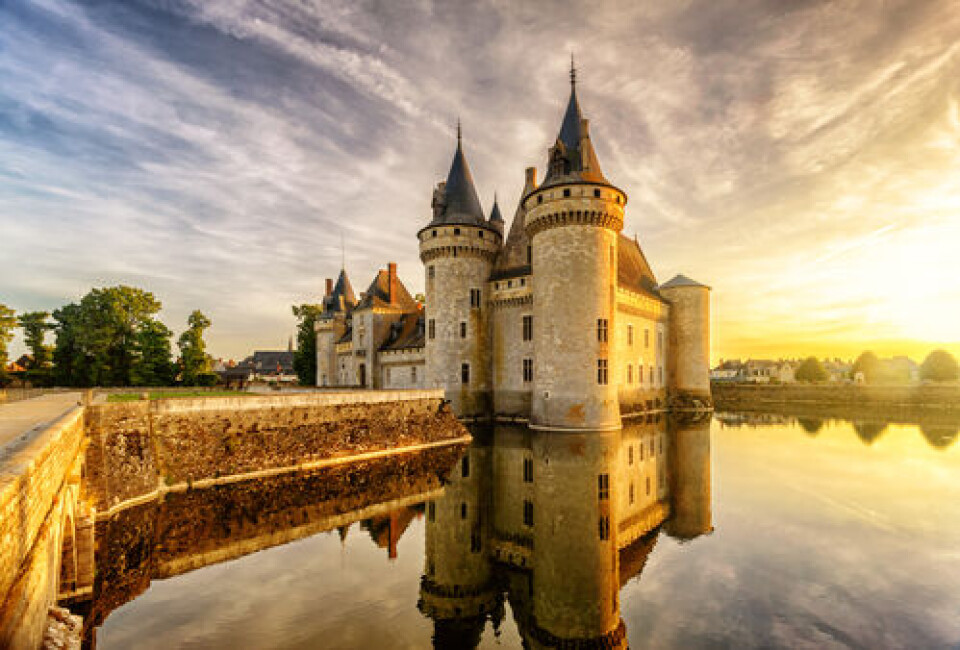-
Photos: 94 chateaux open their doors to visitors in Dordogne
The fifth Chateaux en Fête festival offers a chance to look around many impressive properties that are usually private
-
Martel: the medieval French town home to a 'truffle' train and lavender festival
The small town in the Lot offered refuge to an English throne heir until his death
-
Brittany lighthouse lens removal leads to public outcry
A petition gained over 20,000 signatures, highlighting the ongoing battle over the buildings' heritage in France
Is ‘de’ a sign of being from a ‘posh’ or noble French family?
There is often thought to be a certain cachet to having a so-called ‘particule’

Reader Question: If French people have a ‘de’ in the name (such as de Villepin) - does it mean they are from a ‘posh’ family?
Many French people have the word de in front of their surname, or one of its alternatives, such as de la, du, d’ or des.
The French refer to this as a particule and it is the equivalent of the Russian or German von and the Dutch van and it means ‘of’ or ‘from’.
Examples include the Resistance fighter and first president of the Fifth Republic Charles de Gaulle, poet Jean de la Fontaine, the captain of king Louis XIV’s musketeers D’Artagnan, former prime minister Dominique de Villepin and the actor Louis de Funès.
Does this ‘particle’ mean that these famous Frenchmen were from posh or noble families? Not according to the Association d’entraide de la Noblesse Française (ANF), which was set up to represent noble families in France.
“(In itself) the particule has never been a sign of nobility,” the association explains on its website. “It has always been entirely independent of nobility, often preceding commoners’ names and absent from the names of inarguably noble people.”
However the de did have associations with nobility during the Middle Ages according to the ANF.
In ancient noble families, two brothers with the same surname might seek to differentiate themselves by adding the name of land that they had acquired through marriage, purchase or inheritance.
Subsequently, other wealthy families started also adding a de to their surname.
This was the case for the Fontaine family, which was very rich but not noble. The poet Jean de la Fontaine therefore was from a wealthy family not from a noble one.
Due to these customs, the de became synonymous with wealth and nobility even though many non-noble families also boasted a de in their name. However, many noble families do not have this.
A more certain sign of nobility are such titles as duc, marquis or comte.
Although since 1870 nobility has had no legal recognition in France, such titles are still taken seriously by those who bear them.
Today, there are some 2,300 families that belong to the ANF and which are considered to be noble.
Where did famous Frenchmen get their ‘de’ from?
There is doubt about where Général Charles de Gaulle’s ‘de’ originated. One theory states that de Gaulle is a translation of a Flemish surname: Van de Walle, with the Germanic ‘w’ transforming into a ‘g’ over time.
It is suggested that this meant ‘from the remparts’ (or ‘wall’), and related to the location of the family house.
In this case, the de would not be equivalent to ‘of’ but rather ‘the’. Charles de Gaulle would therefore then probably in this case be descended from a bourgeois Flemish family that obtained its de for reasons unrelated to nobility.
D’Artagnan was a character in a novel by Alexandre Dumas but was based on a real person: Charles de Batz Castelmore d’Artagnan. The d’Artagnan in question was the château d’Artagnan, meaning that d’Artagnan was indeed from a noble family.
Dominique de Villepin is from the Galouzea de Villepin family, a noble family which still exists.
The actor Louis de Funès’ full name was Louis Germain de Funès de Galarza. He was born to a family which used to be a part of the Castilian nobility but lost its wealth, with the de serving as a reminder of their past.
Related articles
Forget the Revolution: a posh name will still take you far in France
Far-right French MP accused of stealing aristocratic surname
Why the French love the UK royals?
























